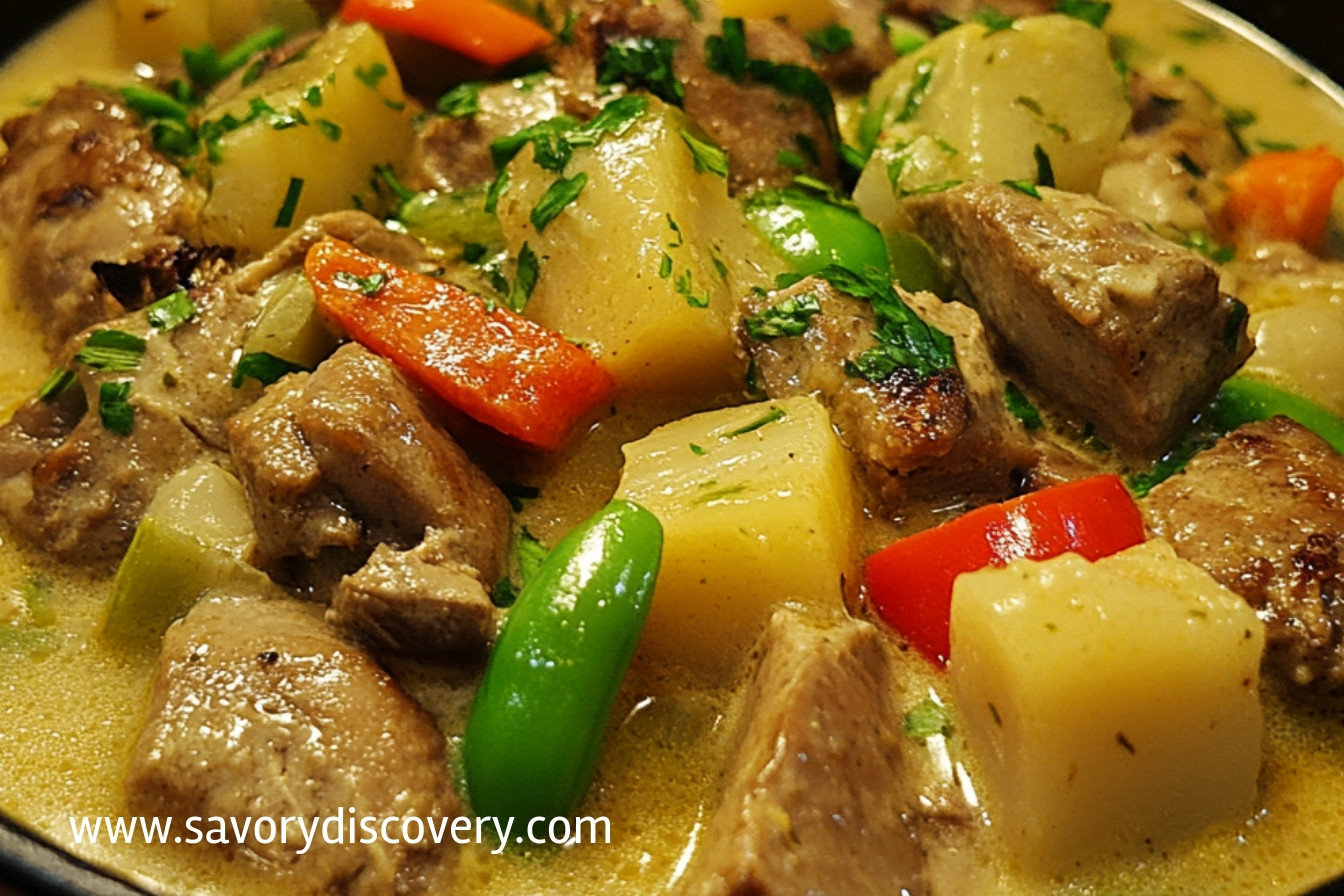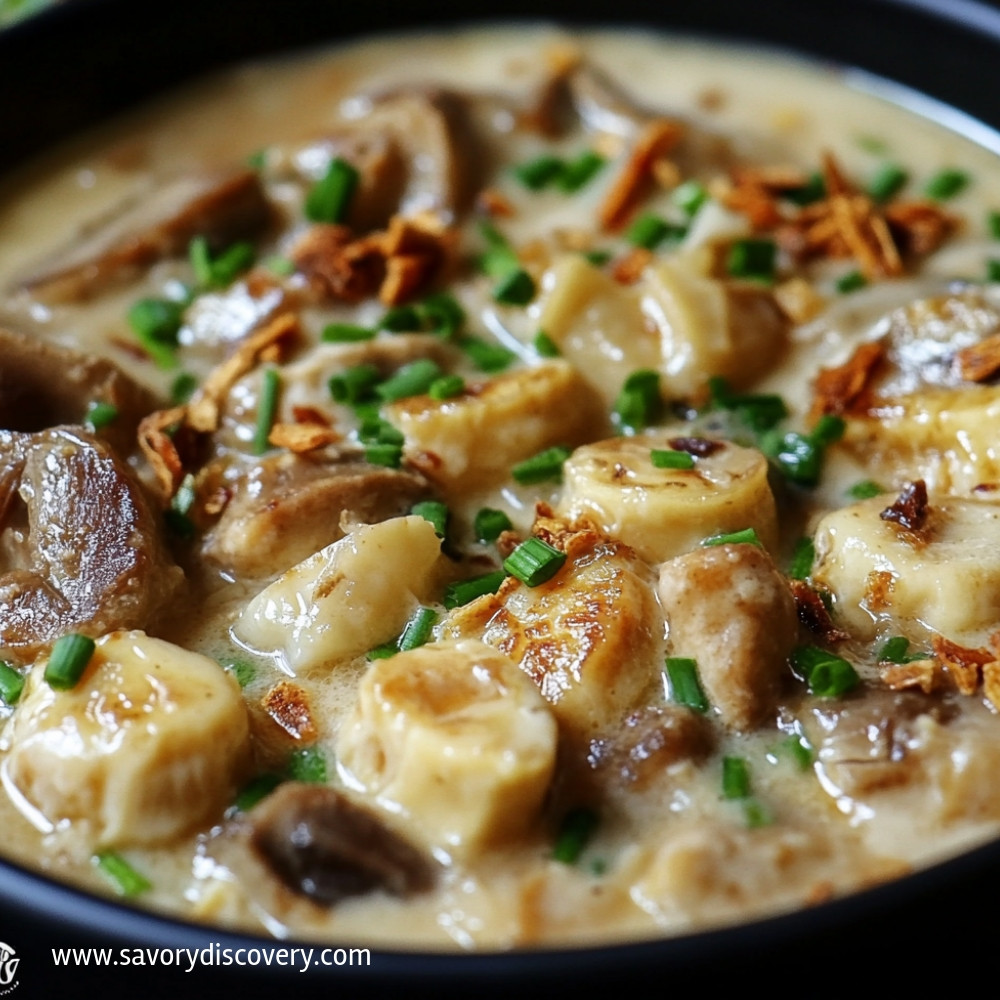
Introduction
Ginataang Gulay is a beloved Filipino stew that combines fresh vegetables with a rich coconut cream sauce. This dish highlights the vibrant flavors of the Philippines, offering both comfort and nutrition in one bowl. Whether served as a side or a main dish, Ginataang Gulay is a perfect representation of home-cooked Filipino cuisine.
Detailed Ingredients with measures
– 2 tablespoons vegetable oil
– 1 onion, diced
– 3 cloves garlic, minced
– 1 thumb-sized ginger, sliced
– 1 medium-sized eggplant, sliced
– 1 cup long green beans, cut into 2-inch pieces
– 1 cup pumpkin, cubed
– 1 cup malunggay leaves (moringa) or spinach
– 1 can (400 ml) coconut milk
– 2 cups vegetable broth or water
– 1 tablespoon fish sauce (optional)
– Salt and pepper to taste
Prep Time
10 minutes
Cook Time, Total Time, Yield
Cook Time: 30 minutes
Total Time: 40 minutes
Yield: Serves 4-6
This delicious and creamy Ginataang Gulay can be enjoyed with steamed rice or as part of a larger meal, showcasing the rich culinary heritage of the Philippines in every bite.
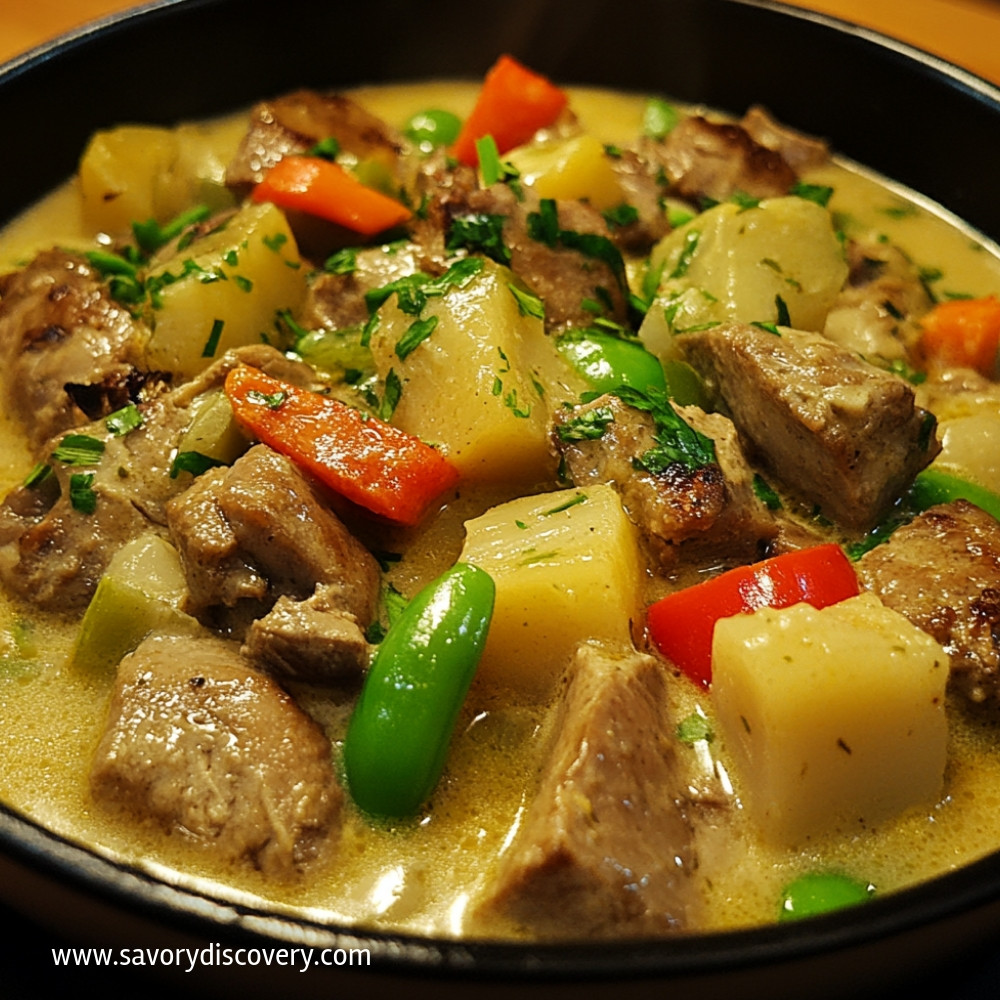
Detailed Directions and Instructions
Step 1: Prepare the Ingredients
Gather the necessary vegetables such as eggplant, green beans, and squash. Rinse them thoroughly under cold water. Cut the eggplant into diagonal slices and chop the green beans and squash into manageable pieces.
Step 2: Sauté the Aromatics
In a large pot, heat oil over medium heat. Add minced garlic, chopped onion, and ginger. Sauté for 2-3 minutes, or until softened and aromatic.
Step 3: Add the Vegetables
Add the sliced eggplant, green beans, and squash to the pot. Stir well to combine the vegetables with the sautéed aromatics.
Step 4: Incorporate Coconut Milk
Pour in the coconut milk and bring the mixture to a gentle simmer. Stir the contents to ensure the vegetables are evenly coated with the coconut milk.
Step 5: Season the Stew
Season the mixture with fish sauce, salt, and pepper according to your taste. Continue to simmer for 15-20 minutes, allowing the vegetables to cook through and absorb the flavors.
Step 6: Finish and Serve
Once the vegetables are tender, adjust the seasoning if needed. Remove from heat and serve hot over rice, ensuring everyone receives plenty of the delicious coconut sauce.
Notes
Note 1: Vegetable Variations
Feel free to substitute or add other vegetables like spinach, bok choy, or even tofu for a different texture and flavor profile.
Note 2: Adjusting Richness
For a creamier texture, use full-fat coconut milk, but for a lighter option, you can opt for light coconut milk.
Note 3: Serving Suggestions
This dish can be complemented with steamed rice or served as part of a larger Filipino meal alongside other traditional dishes.
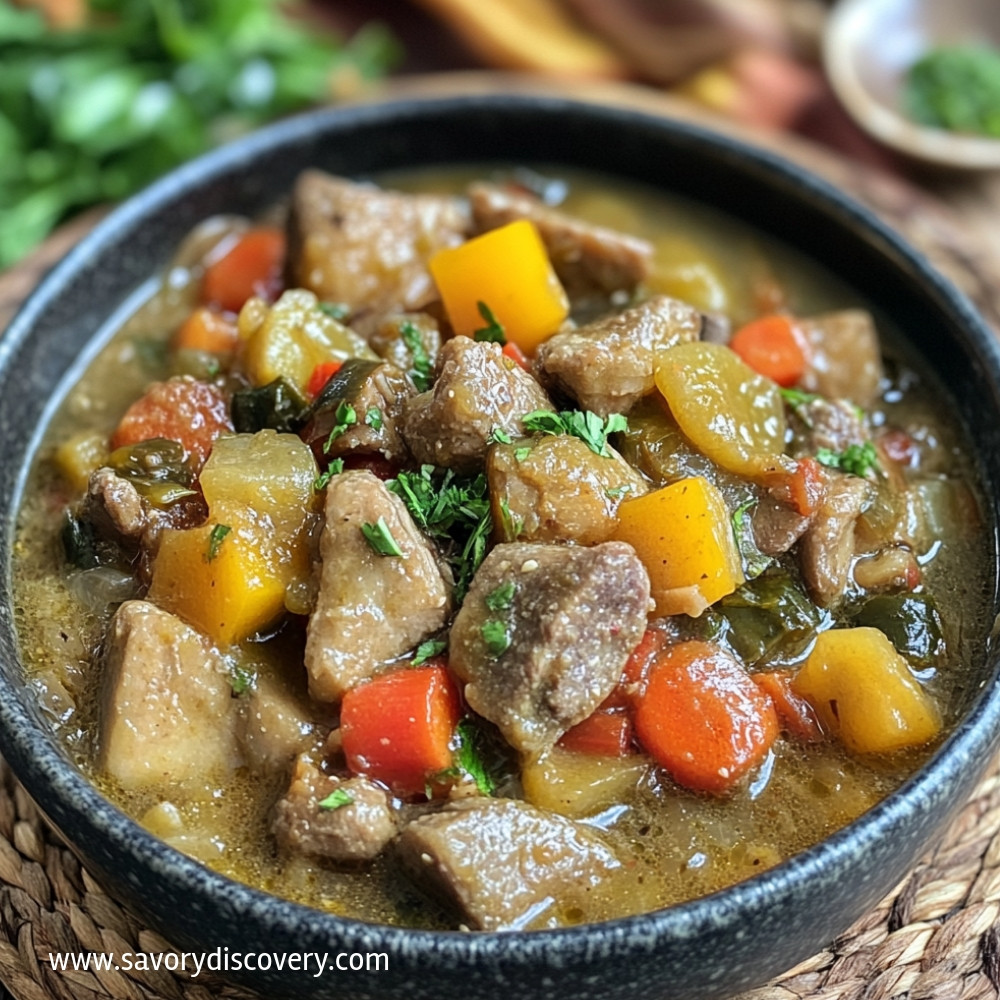
Cook techniques
Stir-frying
Stir-frying is a key technique used in the preparation of ginataang gulay. It involves cooking ingredients quickly at high heat while stirring continuously. This method helps retain the vegetables’ vibrant colors and nutrients.
Sautéing Aromatics
Sautéing the garlic, onion, and ginger at the beginning of the cooking process is essential for building flavor in the dish. This technique releases the essential oils and flavors of the aromatics, creating a savory base for the stew.
Simmering
Simmering is crucial in developing the flavors in ginataang gulay. After adding the coconut milk and vegetables, cooking them over low heat allows the ingredients to meld together, resulting in a rich and creamy stew.
Layering Flavors
Layering flavors is important in this recipe. You start with aromatics, followed by adding the vegetables at different times to ensure that each type is cooked perfectly while contributing its unique taste to the overall dish.
Seasoning
Correctly seasoning the dish as it cooks is vital for enhancing the flavors. Tasting and adjusting the salt and pepper level at different stages ensures a well-balanced final dish.
FAQ
Can I use other vegetables in ginataang gulay?
Yes, you can customize the dish with various vegetables such as carrots, eggplant, or green beans, depending on your preference and seasonal availability.
Can I make ginataang gulay vegan?
Absolutely! To make it vegan, simply omit any meat or seafood add-ins and ensure that your coconut milk is suitable for vegan diets.
How can I store leftovers?
Leftovers can be stored in an airtight container in the refrigerator for up to 3 days. Reheat gently on the stove or in the microwave.
Can I freeze ginataang gulay?
Yes, ginataang gulay can be frozen. Allow it to cool completely, then transfer to a freezer-safe container. It can be stored for up to 2 months. Reheat thoroughly before serving.
What can I serve with ginataang gulay?
Ginataang gulay pairs well with steamed rice, as the creamy sauce complements the rice beautifully, making for a satisfying meal.
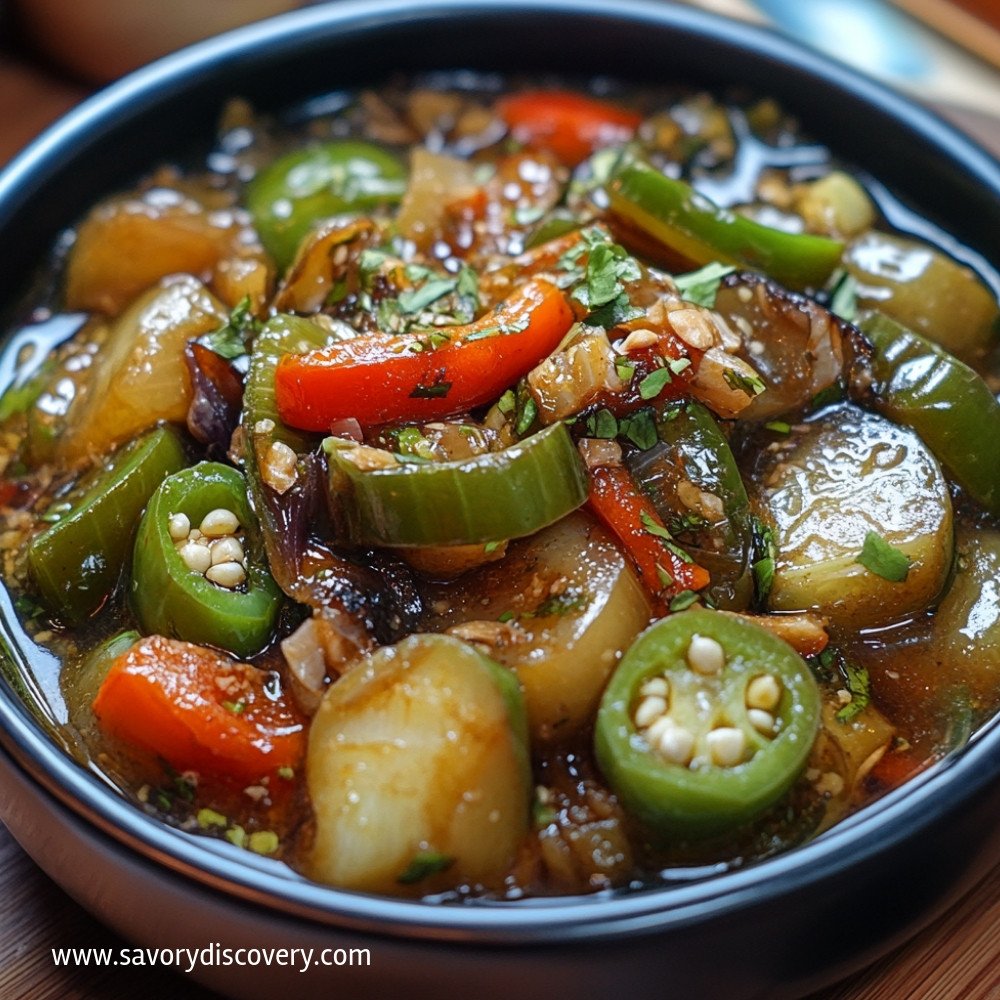
Conclusion
Ginataang Gulay is a delightful Filipino stew that brings together the richness of coconut milk with the fresh flavors of assorted vegetables. This comforting dish not only showcases the versatility of vegetables but also serves as a warm reminder of home-cooked meals. Whether enjoyed on its own or as a side, it’s a true testament to the heart of Filipino cuisine.
More recipes suggestions and combination
Ginataang Sitaw at Kalabasa
Combine long green beans (sitaw) and squash (kalabasa) in a similar creamy coconut sauce for a nutritious twist.
Ginataang Bilo-Bilo
Prepare a sweet variation by adding rice balls, sweet potatoes, and tapioca pearls to the coconut milk for a delightful dessert.
Ginisang Gulay
Stir-fry assorted vegetables with garlic, onions, and tomatoes, then simmer with coconut milk for a quick and tasty meal.
Ginataang Labanos
Use radish (labanos) with coconut milk and spices to create a unique, flavorful dish that pairs well with rice.
Ginataang Ube
Incorporate purple yam (ube) into your menu to enjoy a vibrant and creamy dessert dish infused with coconut flavor.
Vegetable Curry with Coconut Milk
Blend the flavors of curry spices with mixed vegetables and coconut milk for a fusion dish that embraces the best of both worlds.
Seafood Ginataang
Add shrimp, squid, or fish to your ginataang to create a hearty seafood stew, showcasing the ocean’s bounty in a creamy base.
